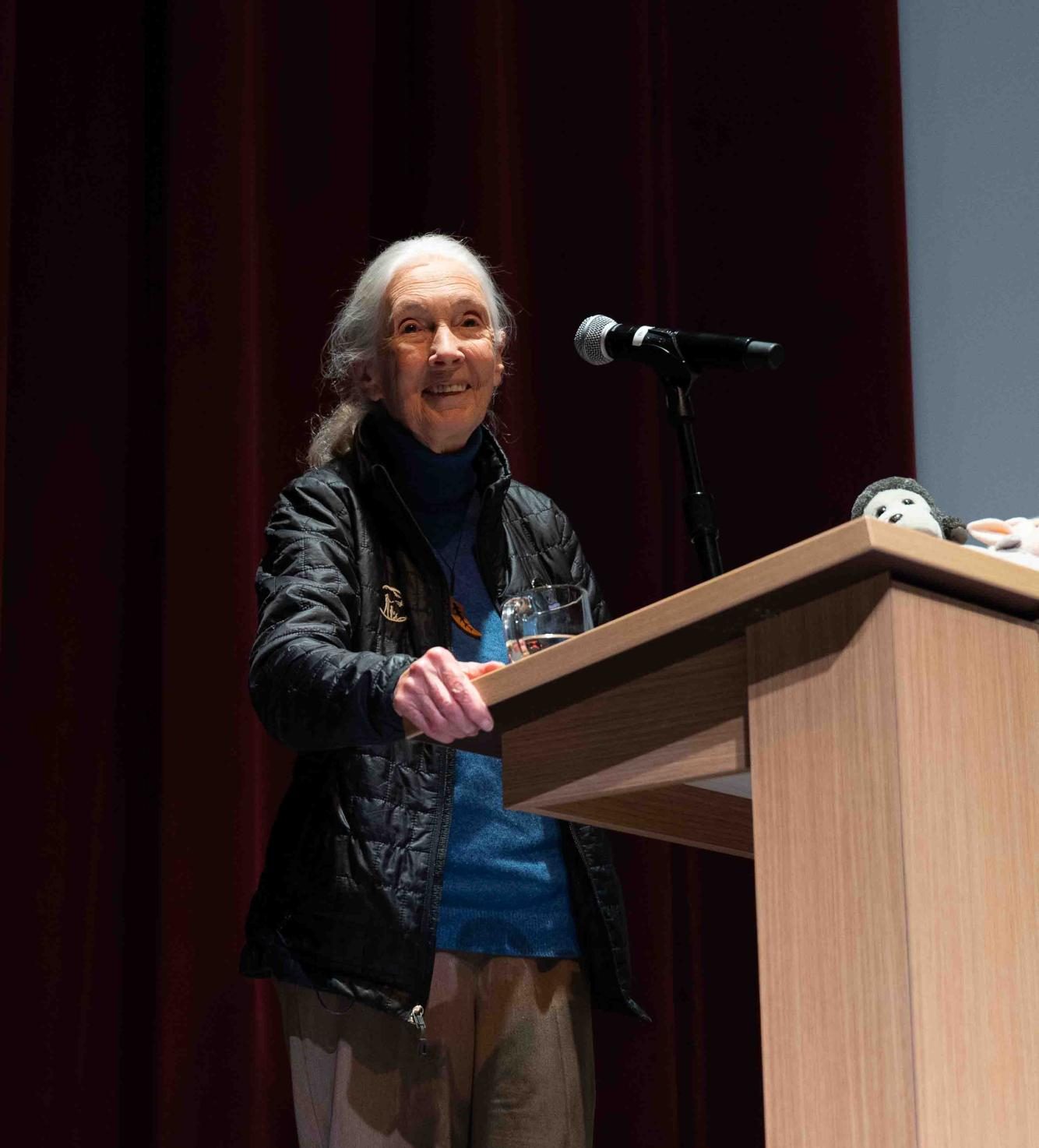Renowned conservationist and primatologist Dr. Jane Goodall visited Lincoln on April 11 to inspire students and Oregonians to make positive changes in their communities.
“Every single person makes an impact on the world every single day. It’s up to us to decide what that impact is,” said Goodall to Lincoln’s filled auditorium of students from around Oregon.
Before Goodall shared her story, students from 14 different elementary, middle and high schools around Oregon presented on their projects to promote conservation and scientific research.
Emaline Porter, an 8th grader at Sunnyside Environmental School, explained how their school testified to the Oregon Department of Fish and Wildlife about putting southern orcas on the endangered list and banning pesticides, as well as how they received a grant for a climate project. She says she gained a lot from the experience.
“It was cool to be able to see her [Goodall] speak live because she’s such an amazing person. I also thought it was really cool to see a bunch of other schools talking about what they were doing for the environment. It gave me a lot of hope for our world to see so many people caring about the environment,” said Porter.
In addition to the presentations, members of the Jane Goodall Institute (JGI), including communications coordinator Kira Leinwand, attended the event to raise awareness of JGI’s work.
“A lot of people know Jane, but they don’t know her Institute and the work that we’re doing off of her story,” Leinwand said. “[We are also here] to talk about Roots and Shoots, hopefully create some new members [and] get people starting their own groups here.”
According to their website, Roots and Shoots is a youth-led branch of the Jane Goodall Institute that empowers young people to take action and create positive change in their communities.
Nateli Sanderson, a freshman from Washington, is a member of the Roots and Shoots Youth Council and author of the book For Tokitae, which tells the story of an Orca kept in captivity for 54 years.
“I live in Washington, so my group is focused a lot on helping the Southern Resident orcas recover because there’s only 73 left,” said Sanderson. “We do a lot of restoration work on salmon habitat, and we plant native plants a lot on our school grounds, and we’ve spoken up about the removal of the dams. That’s the main focus of my projects.”
Throughout her visit to Lincoln, Goodall emphasized the importance of maintaining hope and working to create a positive impact on the environment. She explained that the best way to create change is through acting on a small opportunity and growing from there.
“You can’t solve the problems of the world, but you can do something in your own community,” Goodall said. “Go and start trying to do something about it. Get people to join you. Then [you] see, ‘well, we have made a difference.’ Then you get inspired and want to do more. And then you realize … it’s happening all over the world. You begin to feel, ‘well, after all, there is hope.’”
Throughout her presentation, Goodall shared stories of her fight to protect the environment and natural world, from her time with the chimpanzees of Gombe National Park in Tanzania to her work against animal testing and the meat industry. In each of these stories, she stressed the importance of taking immediate action.
“We’ve got to get together now,” Goodall said. “Why do you think I’d go on trailing around at 91? You saw the reaction of the kids here. It’s making a difference. Otherwise, I wouldn’t do it.”
At the same time, she emphasized the resilience of the natural world.
“Nature, if you give her a chance, time, and some help, she will come back again,” Goodall said.




Virginia Gleser • May 3, 2025 at 9:43 am
Great article. So inspiring to hear Jane Goodall (91) valuing the kids and hearing all the actions they are taking to preserve the earth and the orcas and birds. Working together with her program for kids is wonderful. Hurrah.